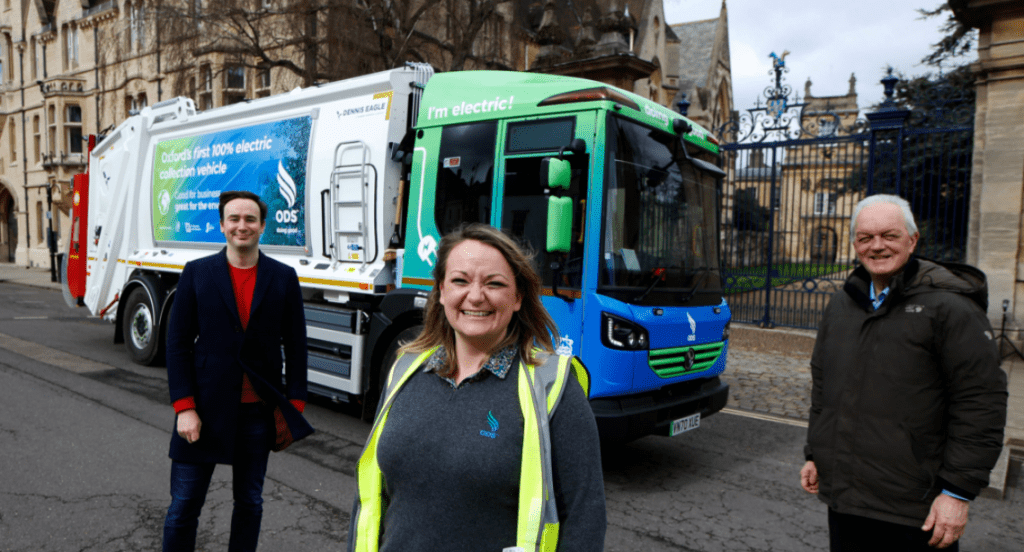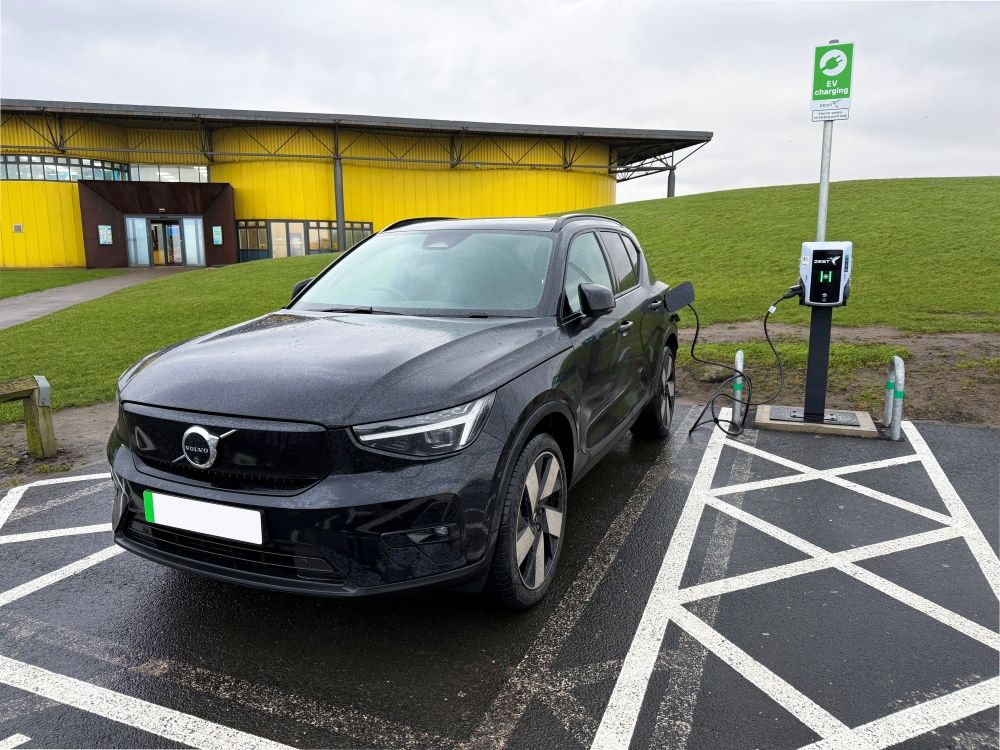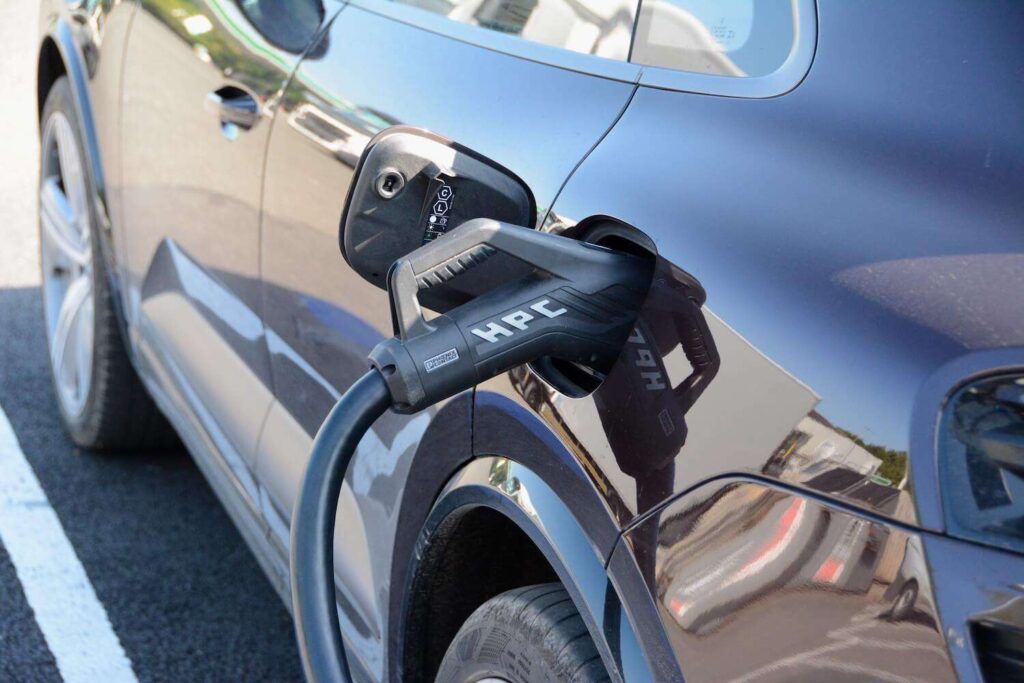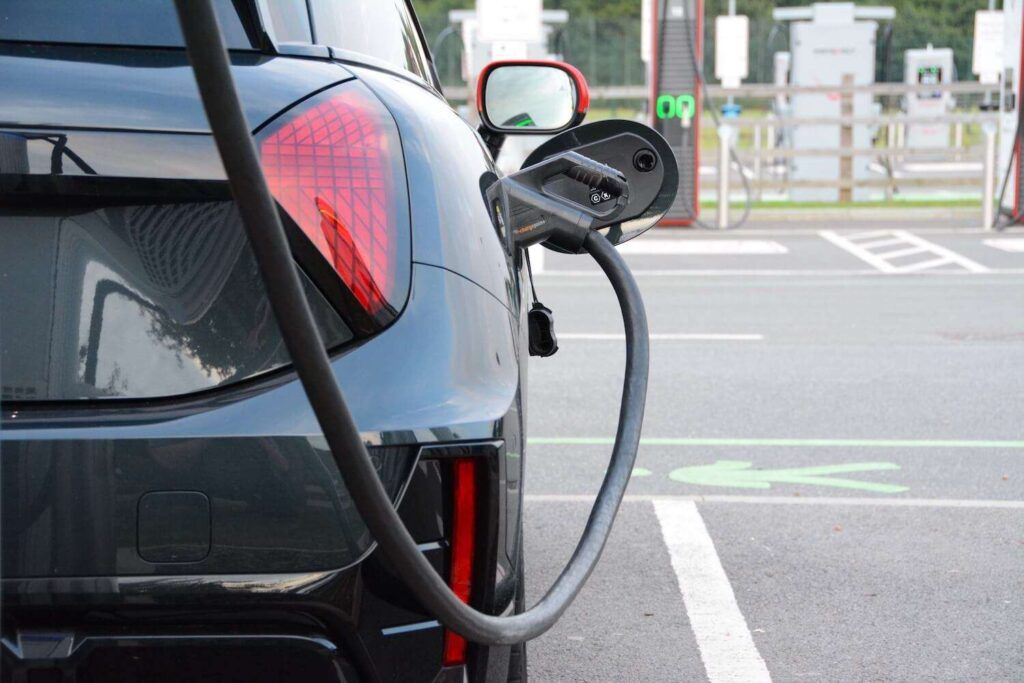Funding for the first electric refuse collection vehicle in Oxford has been achieved ahead of the city’s zero emission zone pilot in August 2021, the local authority has announced.
Part-funded by Energy Superhub Oxford for the council’s wholly-owned company, ODS, the vehicle is the first step on the electrification of its fleet. The vehicle is the latest in its 339-strong fleet to be converted to electric, with plans to convert 25% of the fleet to electric by 2023 with 51 electric vehicles currently in operation and a further eight vehicles on order.
ODS currently has 27 refuse trucks, and once decarbonised to electric models, 750 tonnes less CO2 will be pumped out by Oxford per year— the weight of one average car every day, the company claim.
The electric refuse truck, which was built by British makers Dennis Eagle, also has both a quieter engine and lifting machinery than diesel trucks. It was successfully trialled in July 2020, which allowed ODS to assess the vehicle’s performance and suitability to Oxford’s streets ahead of delivery.
The adoption of electric refuse collection vehicles is still relatively new due to the large battery size meaning vehicles are around double the price of a diesel equivalent.
Oxford City Council has set a target to deliver average annual carbon emission cuts of 10% a year until 2030 – doubling its current business as usual rate of reduction of a 5% year on year reduction target. To achieve this it aims to rapidly decarbonise power for heating systems across its buildings and its fleet vehicles.
The £41m Energy Superhub Oxford project is a key measure in delivering these plans, and is designed to integrate and dramatically decarbonise energy, heat and transport systems across the city. The project onsortium includes Oxford City Council, Pivot Power, part of Renewables EDF, Habitat Energy, Invinity Energy Systems, Kensa Contracting and University of Oxford. Last year, the project saw the installation of 38 electric vehicle chargers and the city’s first 50kW rapid electric charger as well as the delivery of 26 electric vehicles.
Commenting on the vehicle’s arrival, Councillor Tom Hayes, deputy leader and cabinet member for green transport and zero carbon Oxford, Oxford City Council said: “Oxford’s place as a leader in the electric vehicle field is widely recognised and strengthened by our partnership with the world-leading Energy Superhub Oxford. We’re driving forward our efforts to achieve the cleanest air possible, a truly zero carbon city by 2040, and eliminate the council’s own contribution to climate change by 2030. And it’s fantastic news for residents as our electric bin lorry quietly moves around our neighbourhoods and confines its diesel counterparts to the dustbin of history.”
Maria Warner, waste and recycling manager at ODS, said: “Given the fact that we collected more than 3 million bins in 2020 alone, the conversion from diesel-operated vehicles to electric is a huge step in reducing carbon emissions in the city of Oxford. Our trials of the new eRCV went exceedingly well, and we are thrilled about putting the vehicle to use in order to help OCC meet its goal of achieving a zero carbon Oxford by 2050. We are so very thankful to everyone involved, including our front-line workers who have helped to make this day possible.”
Tim Rose, programme manager for Energy Superhub Oxford at Pivot Power said: “Energy Superhub Oxford is delighted to see Oxford’s first electric bin lorry hitting the city’s streets. It’s a significant milestone in the Council’s fleet electrification strategy, which will help to improve air quality and cut carbon across Oxford. The insights and lessons learned from its operation will help other towns and cities across the UK decarbonise transport and accelerate a net zero future.”
image courtesy of Oxford City Council












